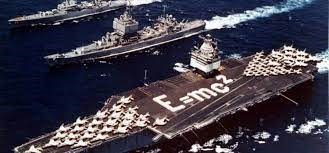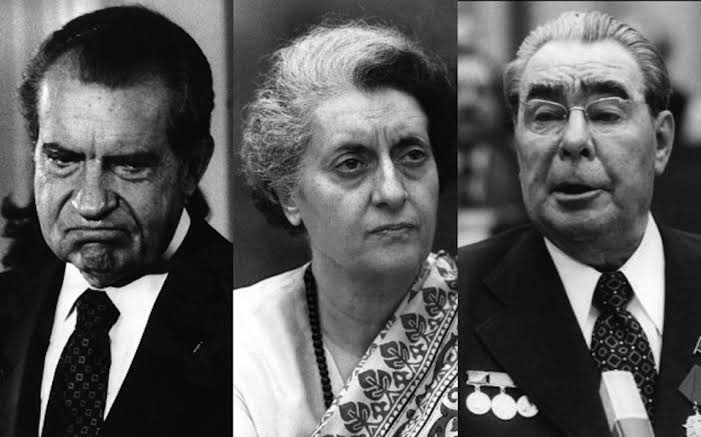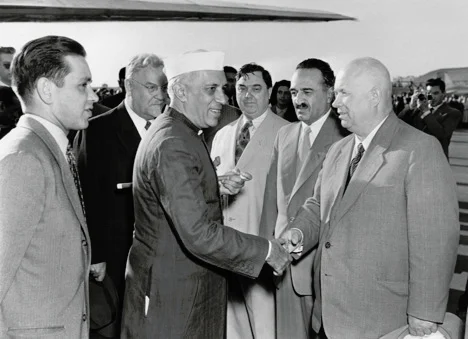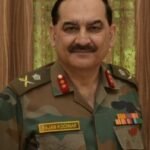India and Russia have had historic ties with each other since almost seven decades now. It was the visit of Prime Minister Nehru to Moscow in the year 1955 which set the tone for cordial and friendly relations with the then Soviet Union. Over the years this relationship has been further cemented with a great deal of Russian military equipment being inducted into our armed forces. This process of military cooperation started with the soviets transferring the technology of MIG-21 aircrafts to India. Today we have a vast array of equipment of Russian origin such as MIG-21, MIG-23, MIG-27, Sukhoi-30, T-72 and T-90 tanks, to name a few. Our recent procurement of the Russian S-400 air defence missile system and a joint venture to manufacture AK-203 assault rifles has given a further boost to this relationship, which had taken a back seat in recent times due to our growing proximity with the Americans.
Foundation of Indo-Soviet Relations
As we look back into history we find that Russia has always been our trusted ally. The Russians intervened in our conflict with Pakistan in 1965 which culminated in a ceasefire. It would also be important to reflect on the Russian role during the 1971 Indo-Pak war when the erstwhile East Pakistan got liberated into a new nation, “Bangladesh”. It was during this time that India got into a very important alliance with Russia by the signing of the Indo-Soviet Treaty of Friendship and Cooperation. The treaty was signed on August 9, 1971 by the foreign ministers of both the countries, Swarn Singh from India and Andrei Gromyko from the Soviet Union. The treaty was significant in the context of the United States making its position clear that it would support Pakistan in the event of a war as also not intervene in case China enjoined the conflict.

Impact of Indo-Soviet Treaty of Friendship and Cooperation
The treaty signalled a win-win situation for both India and Russia as the Russians were also getting embroiled with China with the River Ussuri border clashes. It was the first political treaty India made with another nation. It was in fact a turning point in India’s traditional non-aligned policy so vigorously enunciated at Bandung in 1955. The Indo-Soviet Treaty of Peace, Friendship and Cooperation of 1971 became a robust counter-weight to the menacing Washington-Beijing-Islamabad axis. The Treaty would protect India’s vital geopolitical interests and safeguard her sovereignty and territorial integrity. By curbing hegemonic designs of the USA-China-Pakistan Axis, the Treaty also guaranteed security and peace in the Indian sub-continent.
The assurance from Russia was significant to the Indian military concerns as the Pakistan Army was being tacitly supported by military hardware from Jordan, Iran, Turkey and France at the behest of the United States. The UAE also sent half a squadron of fighter aircrafts and the Indonesians despatched its naval vessels to fight alongside the Pak Navy. India was also up against the combined might of US, UK and China. It was only with the entry of Russians in support of India that this multi pronged attack could be thwarted.
The Defining Moment of the Indo-Pak War 1971
The 1971 Indo-Pak war is considered by the defence analysts as one of the greatest victories of the millennia by an Army of any nation. It could only be compared to the surrender of General Paulus’ at Stalingrad in 1943. It was the culmination of defence and political strategies converging together. The entire war effort would have been unstuck had the support of the Russians not materialised.
As the events had unfolded, the British and the Americans had planned a pincer like movement to intimidate India by the simultaneous deployment of British war ships in the Arabian Sea along the Indian west coast and the Americans moving towards the Bay of Bengal in the East, thereby facilitating the Pak Army which had got sandwiched between the sea and the advancing Indian troops.
To counter this move, the Russians despatched a nuclear armed flotilla which had an array of destroyers, frigates, submarines etc. from Vladivostok on December 13, 1971. These warships were equipped with anti ship missiles targeting enemy ships/aircraft up to 300 kms range. The Russians therefore, pre-empted the designs of the US-UK joint force, making the British ships retreat towards Madagascar and the US task Force halted its advance towards the Bay of Bengal. The Chinese did not intervene fearing that the Russians would retaliate in Sinkiang region.

Building of International Pressure for Ceasefire
In the meanwhile US intensified its efforts to prevail upon Russia to get the Indo-Pak conflict halted. The US sponsored Security Council resolution for a cease-fire tabled in the UN on December 5, 1971 was vetoed by Russia. The US aggressive posturing threatening Russia of global escalation was met by disdain by President Leonid Brezhnev of Russia as the Russians continued their support to the Indian forces in both East and West Pakistan.
Poland with the apparent backing of Russia tabled a resolution in the UN Security Council on December 15, 1971 that called upon India and Pakistan to accept immediate cease-fire and withdraw forces from each other’s territory. This resolution was also vetoed by Russia.

India knew that time was an essence and therefore made all possible efforts to get the Pakistan Army to surrender which they succeeded on December 16, 1971 after Dacca was encircled.
Conclusion
The Indo-Soviet Treaty of 1971 marked the beginning of strong Soviet-Indian cooperation. When USA brought adverse Resolutions against India at the Security Council of the United Nations, Soviet Union vetoed these Pakistan-inspired Resolutions on three occasions. India demonstrated that along with Soviet Union, they were prepared to fight for the freedom of an oppressed people—whatever the economic imperatives might have been. A truly brave India was seen. Today, India and Russia are striving to come closer with the forthcoming visit of Russian President Vladimir Putin. Will this be a path-breaking moment in Indo-Russia relations? Let’s wait and watch.
-The writer is a former MGAOC Central Command. He has served in various important assignments in the Indian Army in Jammu and Kashmir and the North-East. He covers defence issues on various national TV channels. His recent book, “Breaking the Chinese Myth”, has been a best-seller on Amazon. Views expressed are personal and do not necessarily reflect the views of Raksha Anirveda
-The author retired as Major General, Army Ordnance Corps, Central Command, after 37 years of service. A management doctorate and expert on defence modernisation, he is the author of four books, including the Amazon bestseller “Breaking the Chinese Myth,” and a frequent media commentator. He is affiliated with several leading defence and strategic studies institutions in New Delhi. The views expressed are of the writer and do not necessarily reflect the views of Raksha Anirveda






